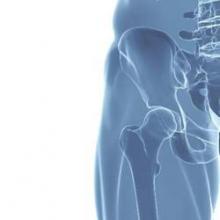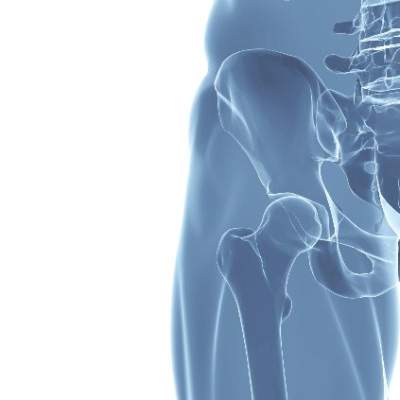User login
Osteoarthritis patients who received patient decision aids (PtDA) in addition to usual educational resources had shorter wait times and fewer surgeries, and were more likely to reach good decision quality about joint replacement surgery, although the overall effect was not statistically significant, reported Dawn Stacey, Ph.D., of the University of Ottawa (Ont.) and her coauthors.
In a randomized, controlled trial of 343 patients undergoing orthopedic screening for hip or knee replacement surgery at an academic hospital or a community hospital, being given a PtDA (intervention) was associated with reduced wait times, compared with controls who received usual care (hazard ratio = 1.25; 95% CI, 0.99–1.60; P = .0653). Mean age of the patients was 66 years; about half had high school education or less and half had household incomes at or below the median income ($58,000) for couples aged 65 or older in Canada.
Surgery rates were 73.2% in the intervention group, compared with 80.5% in controls (relative risk = 0.91; 95% CI, 0.81-1.03), the investigators found. Good decision quality was reached by 56.1% of intervention patients and 44.5% of controls (RR = 1.25; 95% CI, 1.00–1.56, P = .050). However, the overall effect was not significant, Dr. Stacey and coauthors reported.
Most patients in the study had more severe osteoarthritis and were appropriate for considering surgery, but the PtDA may have had “greater effect and discrimination” when it was given to patients with earlier stages of osteoarthritis and may have helped them to consider their nonsurgical options, the investigators wrote.
Read the full study in Osteoarthritis and Cartilage.
Osteoarthritis patients who received patient decision aids (PtDA) in addition to usual educational resources had shorter wait times and fewer surgeries, and were more likely to reach good decision quality about joint replacement surgery, although the overall effect was not statistically significant, reported Dawn Stacey, Ph.D., of the University of Ottawa (Ont.) and her coauthors.
In a randomized, controlled trial of 343 patients undergoing orthopedic screening for hip or knee replacement surgery at an academic hospital or a community hospital, being given a PtDA (intervention) was associated with reduced wait times, compared with controls who received usual care (hazard ratio = 1.25; 95% CI, 0.99–1.60; P = .0653). Mean age of the patients was 66 years; about half had high school education or less and half had household incomes at or below the median income ($58,000) for couples aged 65 or older in Canada.
Surgery rates were 73.2% in the intervention group, compared with 80.5% in controls (relative risk = 0.91; 95% CI, 0.81-1.03), the investigators found. Good decision quality was reached by 56.1% of intervention patients and 44.5% of controls (RR = 1.25; 95% CI, 1.00–1.56, P = .050). However, the overall effect was not significant, Dr. Stacey and coauthors reported.
Most patients in the study had more severe osteoarthritis and were appropriate for considering surgery, but the PtDA may have had “greater effect and discrimination” when it was given to patients with earlier stages of osteoarthritis and may have helped them to consider their nonsurgical options, the investigators wrote.
Read the full study in Osteoarthritis and Cartilage.
Osteoarthritis patients who received patient decision aids (PtDA) in addition to usual educational resources had shorter wait times and fewer surgeries, and were more likely to reach good decision quality about joint replacement surgery, although the overall effect was not statistically significant, reported Dawn Stacey, Ph.D., of the University of Ottawa (Ont.) and her coauthors.
In a randomized, controlled trial of 343 patients undergoing orthopedic screening for hip or knee replacement surgery at an academic hospital or a community hospital, being given a PtDA (intervention) was associated with reduced wait times, compared with controls who received usual care (hazard ratio = 1.25; 95% CI, 0.99–1.60; P = .0653). Mean age of the patients was 66 years; about half had high school education or less and half had household incomes at or below the median income ($58,000) for couples aged 65 or older in Canada.
Surgery rates were 73.2% in the intervention group, compared with 80.5% in controls (relative risk = 0.91; 95% CI, 0.81-1.03), the investigators found. Good decision quality was reached by 56.1% of intervention patients and 44.5% of controls (RR = 1.25; 95% CI, 1.00–1.56, P = .050). However, the overall effect was not significant, Dr. Stacey and coauthors reported.
Most patients in the study had more severe osteoarthritis and were appropriate for considering surgery, but the PtDA may have had “greater effect and discrimination” when it was given to patients with earlier stages of osteoarthritis and may have helped them to consider their nonsurgical options, the investigators wrote.
Read the full study in Osteoarthritis and Cartilage.

